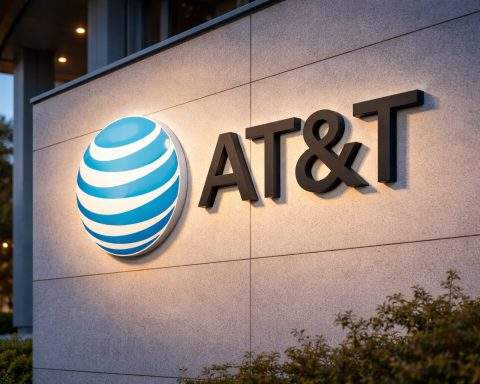- Romanian Crackdown: Romania’s National Office for Gambling (ONJN) has blacklisted Polymarket – a major crypto-based prediction market – for operating without a local licensereadwrite.com. The ban follows an explosive surge of bets on Romania’s recent elections totaling around $600 million in volumereadwrite.com, which authorities deemed unlicensed gambling. Romanian ISPs have been instructed to block Polymarket’s website for local users1 .
- “Not About Tech, About the Law”: ONJN officials stress that betting on future events – whether in local currency or crypto – is still gambling that requires a licensetradingview.com. ONJN President Vlad-Cristian Soare warned “we will not allow blockchain to become a cover for illegal betting”, rejecting Polymarket’s self-description as mere “event trading”readwrite.comcrypto.news. Regulators flagged Polymarket’s lack of fiscal reporting, player protections, and anti-money-laundering oversight as serious concerns2 .
- Global Regulatory Heat: Polymarket has faced similar crackdowns elsewhere. In 2022 the U.S. Commodity Futures Trading Commission fined Polymarket for unregistered trading, forcing it to block American userstradingview.com. Belgium, France, Poland, Singapore, and Thailand have also restricted access to Polymarketreadwrite.com. Despite this, Polymarket’s popularity has soared – users have wagered over $6 billion on the platform globally to date3 .
- Wall Street’s Big Bet: In a stark contrast to Romania’s ban, Intercontinental Exchange (ICE) – the Fortune 500 owner of the NYSE – just announced a $2 billion investment in Polymarket, valuing the startup at roughly $8 billionreuters.com. This massive backing, along with a recent U.S. regulatory greenlight, is paving the way for Polymarket’s return to the American market after a three-year absencereuters.com. Experts see ICE’s bet as a vote of confidence in prediction markets; ICE aims to monetize Polymarket’s rich stream of betting data as market “sentiment” indicators4 .
- U.S. Comeback & Market Impact: Polymarket has acquired a CFTC-licensed exchange (QCEX) and secured a no-action letter from regulators, allowing it to operate a fully compliant platform for U.S. usersreadwrite.comcrypto.news. The company plans a limited U.S. relaunch by the end of November 2025, initially focusing on sports betting markets (NFL, NBA and other major leagues) under strict oversightcrypto.news. The mere news of Polymarket’s U.S. comeback rattled traditional gambling stocks – DraftKings and Flutter Entertainment shares slid 5% and 3% respectively as investors weighed the new competition5 .
Romania Blacklists Polymarket Over $600M Election Betting Boom
In late October 2025, Romanian authorities took aim at Polymarket after an unprecedented frenzy of crypto betting during the country’s elections. According to ONJN – Romania’s National Gambling Office – Polymarket facilitated roughly $600 million worth of wagers on Romania’s presidential race, plus another $15 million on Bucharest’s local electionsreadwrite.com. The platform allowed users to bet on election outcomes using cryptocurrency, a practice the regulator squarely categorizes as illegal gambling without a Romanian licensereadwrite.com6 .
ONJN officially added Polymarket.com to its blacklist of unauthorized gambling sites on October 29threadwrite.com. This means internet providers in Romania are now required to block local access to Polymarket’s sitereadwrite.com. For Romanian bettors, the booming crypto prediction market abruptly went dark. “The platform does not intermediate investments… It organizes bets between participants, without a license and without oversight,” ONJN wrote, explaining its decision6 .
Crucially, regulators pushed back on Polymarket’s claim that it offers harmless “event trading.” The ONJN highlighted that Polymarket’s model has all the hallmarks of gambling: people staking money on uncertain future events, peer-to-peer (counterparty) wagers, and the platform taking a cut of each betcrypto.news. Accepting Polymarket’s semantics “would create a dangerous precedent” letting unlicensed operators evade gambling laws – especially during sensitive events like national elections, the agency warnedcrypto.news. In blunt terms, ONJN president Vlad-Cristian Soare said the crackdown “is not related to technology, but to the law”, noting that “regardless of whether you bet in lei or crypto, if you bet money on a future result, we are talking about gambling that must be licensed”crypto.newstradingview.com. He added that blockchain won’t be allowed as a loophole for illegal bettingreadwrite.com. Romanian officials also pointed out Polymarket’s absence of local tax reporting, responsible gaming measures, and anti-money-laundering controls, underscoring the risks of an unsupervised offshore betting platform2 .
The Romanian ban on Polymarket comes amid a broader national campaign against unlicensed online gambling. In the past five months alone, Romania’s ONJN has issued 130 sanctions and blacklisted 93 gambling sites operating without approval, according to industry news reportsintellectia.ai. By making Polymarket the latest example, regulators signaled that even trendy blockchain-based platforms must play by the rules if they take bets from Romanians. “ONJN will not allow blockchain to become a cover for illegal betting,” President Soare said emphaticallyreadwrite.com. The message was clear: betting is betting, no matter the technology or currency, and it falls under gambling laws meant to protect consumers and the state’s interestsreadwrite.com7 .
A History of Regulatory Run-Ins
Polymarket’s clash with Romanian authorities is not an isolated incident – it’s part of a global pattern of regulators scrutinizing crypto prediction markets. Founded in 2018, Polymarket grew popular as a decentralized platform where users trade on the outcomes of real-world events (from elections to sports and crypto prices) using stablecoins. But this innovative concept quickly ran afoul of gambling and financial laws in multiple jurisdictions.
In the United States, Polymarket learned regulators’ stance the hard way. In early 2022, the U.S. Commodity Futures Trading Commission (CFTC) fined Polymarket $1.4 million for offering event-based binary options without regulatory approvaltradingview.com. To settle the case, Polymarket shuttered its markets to U.S. participants and geo-blocked Americans from using the sitetradingview.com. De facto, the world’s largest economy was off-limits to this “global” predictions platform – at least until it could find a lawful path.
Other countries soon took similar actions. Belgium, France, Poland, Singapore, Thailand, and more have all restricted or banned Polymarket’s operations in recent years for failing to obtain gambling or trading licensesreadwrite.comtradingview.com. The common concern: Polymarket’s peer-to-peer betting on future events looked too much like unregulated gambling (or unregistered derivatives trading) under their laws. Event contracts can fall into a gray zone between betting and financial instruments, prompting both gambling regulators and securities regulators to keep a close eye. For instance, Polymarket’s rival Kalshi – a CFTC-regulated U.S. prediction market – has also faced legal battles and even Department of Justice scrutiny over which kinds of event contracts it can offerreadwrite.com. This entire sector straddles a fine regulatory line.
Despite these challenges, users have flocked to Polymarket whenever and wherever it’s accessible. Over $6 billion worth of bets (“predictions”) have been placed on Polymarket’s platform to date, according to the company’s own statisticsreadwrite.com. Its markets have a track record of surging activity around major news events. For example, during the 2024 U.S. elections, Polymarket saw over $500 million in bets on political outcomesfacebook.com. The recent $600+ million Romanian election spree further highlights how rapidly usage can spike when big events capture speculators’ attentionreadwrite.com. This popularity has often outpaced regulatory readiness. “Polymarket has become synonymous with understanding the probability of current events,” claims founder Shayne Coplan, emphasizing the platform’s analytical value as much as its speculative allurereadwrite.com. But from a regulator’s perspective, the more money and public interest these markets attract, the more they must be brought into compliance. As one observer put it, Polymarket’s “contrasting fortunes highlight the global regulatory patchwork” crypto betting platforms face – hailed in some quarters as fintech innovation, yet clamped down elsewhere as illegal gambling8 .
Wall Street Bets Big on Polymarket’s Potential
Even as some governments crack down on Polymarket, big players in traditional finance are embracing it. The most striking vote of confidence came in October 2025, when Intercontinental Exchange (ICE) – the parent company of the New York Stock Exchange – unveiled a plan to invest up to $2 billion in Polymarketreuters.com. This deal, which values the startup at a whopping $8 billion pre-moneyreuters.com, propels Polymarket into the upper echelons of fintech startups. It’s not often that a major exchange operator bankrolls a crypto platform that was, until recently, on regulators’ naughty list.
ICE’s strategic investment is about more than just owning a stake in a prediction market. The real prize is data. Prediction markets generate a wealth of real-time information on what people collectively expect to happen – essentially crowd-sourced odds on elections, sports, economic indicators, and more. ICE plans to leverage Polymarket’s event-driven data to provide “sentiment indicators” for traditional marketsreuters.com. “Every rumor pays a fee,” notes Running Point Capital Advisors CIO Michael Ashley Schulman, explaining that ICE can monetize this data by selling the odds as insights alongside conventional financial metricsreuters.com. In other words, Polymarket’s bets could help inform Wall Street traders about public sentiment on everything from Federal Reserve moves to celebrity divorces, blurring the line between betting market and information service.
The timing of ICE’s bet is also telling. It came as Polymarket was on the cusp of re-entering the U.S. legally. In September 2025, Polymarket secured a key approval from the CFTC to operate a regulated platform on American soilreuters.com. This followed Polymarket’s $112 million acquisition of QCX (QCEX), a small Florida-based exchange and clearinghouse that was already licensed by the CFTCreadwrite.com. By buying QCEX, Polymarket essentially purchased a shortcut to regulatory compliance – the licenses needed to offer “event contracts” in the U.S. without being shut down as an illegal gambling sitereadwrite.com. The CFTC even issued Polymarket a no-action letter, signaling it would permit the platform’s activities as long as it stays within agreed boundariescrypto.news. With these pieces in place, ICE’s multi-billion-dollar infusion appears to be fueling Polymarket’s mainstream expansion rather than a risky punt. As Reuters reported, ICE’s move marks the NYSE owner’s expansion into event-driven markets just as this once-niche asset class gains popularityreuters.com. Polymarket, once a scrappy DeFi project, is now aligning with some of the biggest names in finance.
Notably, Polymarket isn’t the only prediction market attracting serious capital. Rival platform Kalshi recently raised $300 million in a funding round, hitting a $5 billion valuation, to expand its own regulated event trading offerings (like contracts on economic indicators)readwrite.com. And Polymarket earlier drew funding from 1789 Capital – a VC firm tied to Donald Trump Jr. – underscoring how even political figures are betting on the growth of these marketsreuters.com. The infusion of institutional money suggests a belief that betting on real-world events could become a mainstream financial activity, if done within a clear legal framework. That is a remarkable shift, considering that a few years ago “prediction markets” were widely seen as fringe gambling websites facing shutdown.
“Coming Home”: Polymarket’s U.S. Relaunch Strategy
Armed with cash and approvals, Polymarket is now executing a carefully crafted plan to “come home” to the U.S. marketreadwrite.com. The company’s founder and CEO, Shayne Coplan, announced in July that Polymarket’s acquisition of the CFTC-regulated QCEX would “pave the way for us to welcome American traders again… Polymarket is coming home.”readwrite.com After being off-limits to Americans since 2021, Polymarket’s return is slated to begin imminently. According to Bloomberg and company statements, Polymarket aims to reopen access to U.S. users by late November 2025tradingview.com. However, it won’t be a full return all at once – the rollout is limited and strategically focused on sports betting markets first9 .
Why sports? Two reasons: regulatory and commercial. Legally, sports outcomes are one area where event contracts might get more leeway in the U.S., especially after the Supreme Court’s 2018 decision allowing states to legalize sports betting. By concentrating on high-volume sports events like NFL and NBA games, Polymarket can tap into an already booming (and largely legal) betting market, but do so under the umbrella of federal derivatives regulationcrypto.news. Essentially, they will offer crypto-settled “event contracts” on sports scores or team wins, functioning much like bets but cleared on a CFTC-regulated exchange. This could make Polymarket an unusual hybrid: a platform where users “trade their opinions” on games as legally as if they were trading oil futures, albeit with much smaller stakes10 .
Commercially, focusing on sports could quickly attract a broad user base. Sports betting is culturally mainstream in the U.S. now, and Polymarket’s tech-savvy twist – using crypto and allowing users to trade in and out of positions in real-time – might offer something new. “Polymarket is the largest prediction market globally,” Coplan has noted, and the company clearly wants to leverage that scale in the lucrative U.S. sports betting arenareadwrite.com. By starting with popular sports contests, Polymarket can market itself as a kind of next-generation sportsbook or exchange, rather than diving straight into more politically sensitive markets like elections (which U.S. regulators might still balk at). In time, if the platform builds trust with regulators, it could expand its U.S. offerings to cover elections, economic indicators, and other event contracts – but sports is the foot in the door.
Disrupting the Betting Landscape – Hype vs. Hurdles
Polymarket’s return to America is being closely watched by both tech enthusiasts and the gambling industry. Optimists argue that blockchain-based prediction markets could disrupt traditional sportsbooks and even information markets. If anyone can bet (or “invest”) on the likelihood of an event and trade those positions freely, it might challenge the house-driven model of Vegas bookmakers or online betting apps. Indeed, the very news of Polymarket’s impending U.S. launch appeared to rattle publicly-traded sportsbook operators. Shares of DraftKings, a leading U.S. sports betting company, fell about 5%, and Flutter Entertainment (owner of FanDuel) dropped 3% after Polymarket’s plans were reportedcrypto.news. This market reaction suggests investors see a real threat: a well-funded, tech-driven rival entering the field. Polymarket is being “hailed in the U.S. as a potential disruptor of traditional sportsbooks,” one analysis noted, even as it’s blacklisted in places like Romaniacrypto.news. With an $8 billion valuation and the NYSE’s parent on board, Polymarket suddenly has a gravitas that few startup betting platforms ever attain.
However, significant hurdles remain. For one, Polymarket must navigate a patchwork of U.S. state laws on gambling. Its current approach – using a federal commodities license – might preempt some state gambling regulations, but it’s uncharted territory. Any misstep or an unexpected regulatory shift could invite renewed scrutiny. “Whether its next act in the U.S. cements its legitimacy or invites new scrutiny remains to be seen,” as crypto news outlet Crypto.News aptly observedcrypto.news. American regulators, even with a green light from the CFTC, are not monolithic; state gaming commissions or Congress could still push back if prediction markets start to look too much like unregulated gambling or influence-sensitive events like elections. In fact, just this year Illinois regulators issued warnings reaffirming that off-exchange prediction markets are illegal in their statereadwrite.com, signalling that some jurisdictions remain wary.
Another challenge is public perception and trust. Polymarket’s crypto-centric model means users typically interact with digital wallets and stablecoins, which can be intimidating for mainstream bettors. The platform will need to ensure a smooth user experience and robust consumer protections (like safeguards against problem gambling and fraud) to gain wide acceptance. ONJN’s critique that Polymarket lacked proper “player protection mechanisms” will be an important issue to address as it expandstradingview.com. Polymarket will likely implement stricter compliance measures – such as KYC identity checks and betting limits – in its U.S. incarnation to satisfy regulators and appeal to a broader audience.
Outlook: The Future of Prediction Markets
The Polymarket saga highlights a pivotal moment in the evolution of prediction markets and crypto-based betting. On one hand, demand for these platforms is clearly booming, as evidenced by the hundreds of millions wagered on political events and the entrance of deep-pocketed investors. They tap into a primal human interest – speculating on the future – while also potentially offering crowdsourced insight (for example, prediction market odds have often been cited as more accurate than polls for electionscrypto.news). If Polymarket and its peers can operate legally, they might become a new layer of the financial system, where betting on events is as commonplace as buying insurance or trading stocks.
On the other hand, the regulatory spotlight will only intensify as prediction markets grow. Governments worry about gambling addiction, market manipulation, and even national security (imagine bets on a coup or a pandemic outcome influencing real-world actions). Romania’s hardline stance – “gambling is gambling” regardless of crypto – represents one end of the spectrumtradingview.com. The U.S. CFTC’s willingness to experiment with regulated event contracts is a more permissive approach, yet even in the U.S., certain lines (like betting on assassination outcomes or elections without approval) remain bright red. Other countries will chart their own courses, meaning Polymarket and similar platforms must continuously adapt to a mosaic of laws.
For now, Polymarket is charging ahead, buoyed by fresh capital and a sense that the wind is at its back in the U.S. market. The coming weeks will be crucial: as Polymarket launches its U.S. sports markets, all eyes will be on user uptake and any regulatory reactions. A successful, controversy-free rollout could strengthen the case that prediction markets have a legitimate place in the fintech landscape. Failure or scandal, however, could set back the industry’s progress significantly.
Experts are divided on the long-term forecast. Some believe Polymarket’s partnership with a major exchange operator will professionalize the industry and keep it within legal guardrails. Others caution that mixing retail betting with financial markets has inherent risks – volatility, ethical concerns, and the potential to undermine the integrity of events being bet on. The truth will likely depend on how responsibly companies like Polymarket act under their newfound legitimacy.
What is undeniable is that Polymarket’s journey from outlaw platform to Wall Street-backed contender marks a turning point. As one industry executive put it, “Polymarket has built a cultural phenomenon” and now has the chance to “reach its full potential” by leveraging proper licenses and expertisereadwrite.com. The platform that was once banned across continents is now being welcomed, at least by some, as an innovator. The next year will show whether Polymarket can truly deliver on its promise – turning the collective predictions of the crowd into both a profitable business and a respected source of insight – or whether the house (in this case, the regulators) will ultimately win the game.
Sources:
- Rachael Davies, ReadWrite – Romania’s national gambling regulator adds Polymarket to its operator blacklist, Nov. 3, 2025readwrite.com11 .
- Cointelegraph News via TradingView – Romania blacklists Polymarket for illegal crypto betting amid $600M election wagers, Nov. 2025tradingview.com12 .
- Anthony Patrick, Crypto.News – Polymarket’s US comeback gains steam as Romania bans platform, Nov. 2, 2025crypto.news5 .
- Reuters – NYSE owner takes $2 billion stake in Polymarket as prediction markets heat up, Oct. 7, 2025reuters.com4 .
- Blockchain.News – Polymarket Faces Romanian Ban Amid U.S. Market Resurgence, Nov. 2, 2025blockchain.news13 .
- ReadWrite – Polymarket returns to the US with $112 million acquisition (QCEX), July 21, 2025readwrite.com10 .
- ONJN (Romanian National Gambling Office) Press Release – Decision to blacklist Polymarket, Oct. 29, 2025 (via onjn.gov.ro)readwrite.com6 .






